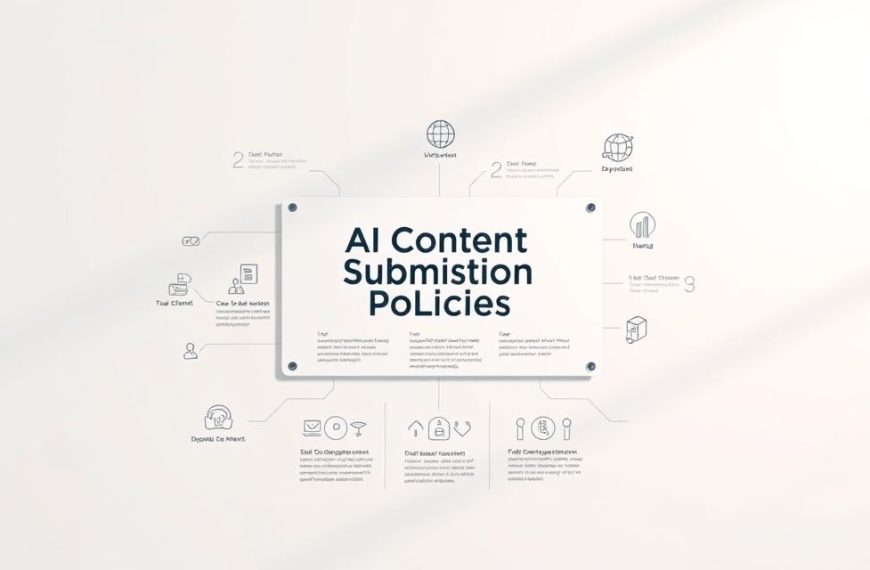UK organisations increasingly recognise artificial intelligence’s transformative potential. Recent research by Pure Storage and Vanson Bourne reveals 91% of IT leaders view AI as critical for competitive advantage. Yet nearly half of British firms report implementation hurdles that threaten progress.
A striking 42% of enterprises now prioritise AI-first strategies, according to data from 70,000 decision-makers. However, 88% anticipate infrastructure strain from AI-generated data volumes. This gap between ambition and execution exposes systemic issues across sectors.
Technology debt and legacy systems compound operational pressures. Energy costs for AI processing have surged 58% since 2022, while 78% of leaders question their infrastructure’s scalability. Cybersecurity concerns further complicate adoption timelines.
Skills shortages remain acute, with 63% of UK firms lacking specialised AI talent. One CTO noted: “Our teams understand the ‘why’ of AI, but the ‘how’ requires fundamental restructuring.” This disconnect persists despite £3.4bn invested in British AI initiatives last year.
As companies navigate these complexities, strategic planning becomes paramount. The following analysis explores practical solutions for overcoming implementation barriers while maintaining competitive edge.
Current Trends in AI Adoption Among UK Businesses
New data reveals a significant shift towards AI-driven strategies across British industries. Over half of companies now allocate 49% of IT budgets to artificial intelligence projects, according to The Innovation Race study. This reallocation reflects growing confidence in machine learning’s ability to streamline workflows.
Insights from Recent Research Reports
A comprehensive survey of 73,650 executives shows marketing teams lead AI adoption at 36%. Automation follows closely, with 26% using intelligent systems for repetitive tasks. Operational efficiency improvements remain the top-cited benefit, outpacing customer experience enhancements.
AI Investment and Market Growth
Financial commitments tell a compelling story. Nearly 90% of technology investments now prioritise innovation potential over short-term cost savings. This strategic focus fuels market expansion, with analysts predicting £4.5 billion valuations for Britain’s AI sector in 2024.
Departmental timelines confirm this prioritisation. IT teams dedicate 53% of their working hours to AI implementation – a threefold increase since 2021. These findings underscore artificial intelligence’s transition from experimental tool to core business strategy.
Challenges in AI Integration for Organisations
British enterprises encounter formidable obstacles when implementing advanced computational systems. These hurdles stem from both physical infrastructure constraints and financial realities shaping operational decisions.
Infrastructure Limitations and Data Centre Pressures
Modern systems demand unprecedented data handling capabilities. Recent surveys show 88% of technical leaders anticipate their storage facilities will soon overflow with machine-generated information. This strain creates critical performance bottlenecks across sectors.
| Infrastructure Challenge | Impact | Common Response |
|---|---|---|
| Data volume growth | 78% report processing delays | Cloud migration |
| Capacity constraints | 56% reduced innovation focus | Hardware upgrades |
| Energy requirements | 33% budget reallocations | Efficiency audits |
Economic Pressures and Technology Debt
Financial considerations compound technical barriers. Over a third of UK firms report accumulated technology debt from maintaining outdated systems while funding new initiatives. Energy expenditure proves particularly burdensome, with power costs for computational infrastructure rising 58% since 2022.
A manufacturing CTO summarised the dilemma: “Every pound spent propping up legacy systems is one less available for transformative projects.” This fiscal tightrope walk forces many teams to prioritise immediate operational needs over strategic advancements.
These intertwined challenges create complex decision-making landscapes. Organisations must balance short-term functionality with long-term competitiveness in an era of rapid technological change.
How Businesses Struggle With AI Innovations
British organisations face critical decision points when deploying intelligent systems. Recent studies show 45% of leaders encounter significant roadblocks during implementation phases, creating costly delays in digital transformation efforts.
Overcoming Adoption Barriers and Investment Risks
Financial uncertainties deter progress for many firms. A quarter of decision-makers report ROI concerns as their primary inhibitor, while 30% cite implementation costs. Expertise gaps compound these issues – 35% lack technical specialists to manage complex deployments.
| Challenge | Affected Firms | Mitigation Strategy |
|---|---|---|
| Skill shortages | 35% | Partnerships with tech providers |
| Cost overruns | 30% | Phased implementation |
| ROI uncertainty | 25% | Pilot programmes |
Impact on Operational Efficiency and Customer Experience
While 56% of companies target workflow improvements through automation, 40% report integration difficulties with legacy systems. A technology director observed: “Our customer service bots initially reduced call volumes, but handling complex queries remains challenging.”
Measurement practices reveal further complications. Though 73% use efficiency metrics to gauge success, many struggle to quantify subtle benefits like decision-making speed or error reduction rates. This gap in assessment frameworks complicates strategic planning for future investments.
Economic Factors Affecting AI Implementation
One in three UK firms identifies energy expenses as their top innovation barrier, according to recent industry analysis. Financial pressures now shape strategic decisions as companies juggle transformative investments with daily operational demands.
Rising Energy Costs and Budget Allocations
Power requirements for advanced systems strain financial plans. Since 2022, energy bills for computational infrastructure have increased 63% – faster than any other operational cost. This surge forces difficult trade-offs between maintaining legacy systems and funding new capabilities.
Technology debt compounds these challenges. 34% of organisations report dual spending on outdated platforms and modern tools. A retail CFO explained: “Every infrastructure upgrade requires cutting other budgets. We’ve delayed warehouse automation twice this year.”
Smaller enterprises face heightened pressures. While large corporations allocate 47% of IT funds to AI projects, smaller competitors manage just 22%. This disparity threatens market competitiveness as advanced tools become industry standards.
With nearly half of technology budgets earmarked for intelligent systems, leaders must demonstrate clear value from every investment. Strategic partnerships and phased rollouts help balance immediate costs with long-term gains.
The Role of Cybersecurity and Data Privacy in AI Adoption
Nearly half of UK technology chiefs identify cyber attacks as their top innovation blocker. This security challenge reshapes corporate strategies, forcing organisations to reconcile cutting-edge ambitions with data protection realities. Artificial intelligence systems handle 40% more sensitive information than traditional platforms, amplifying risks across sectors.
Mitigating Cyber Threats in an AI-Driven Environment
Traditional security measures falter against AI-specific vulnerabilities. Attack surfaces expand as machine learning models process customer behaviour patterns and financial records. One financial services CISO noted: “We’ve doubled our intrusion detection spend, but novel attack vectors keep emerging.”
Effective protection requires layered approaches. Real-time monitoring now complements encryption protocols, while 63% of firms conduct weekly vulnerability assessments. These steps help address the 49% of leaders who view cyber threats as critical business risks.
Balancing Security Concerns with Innovation Objectives
Resource allocation proves contentious in boardroom discussions. Security measures consume 31% of IT budgets in sectors handling sensitive data – funds many argue could accelerate digital transformation. However, neglecting protection risks catastrophic breaches.
Data privacy regulations complicate this balance. Over a third of enterprises report compliance costs exceeding initial forecasts. Proactive frameworks that integrate security into development phases help mitigate these pressures while maintaining operational agility.
As UK organisations navigate this complex landscape, strategic partnerships with cybersecurity specialists grow increasingly vital. The path forward demands equal parts vigilance and adaptability to harness AI’s potential responsibly.
Addressing the Skills Shortage and Enhancing Expertise
Britain’s artificial intelligence ambitions face a critical bottleneck: 37% of firms report skills gaps directly threatening innovation pipelines. This expertise deficit spans technical competencies and strategic implementation knowledge, with 35% of leaders citing lack of specialised talent as their primary adoption barrier.
The challenge extends beyond recruitment. A manufacturing director observed: “We’ve doubled training budgets, but converting basic digital skills into AI expertise remains painstaking.” This reality forces organisations to rethink traditional talent strategies amid declining computing education rates.
Upskilling Initiatives and Talent Acquisition Strategies
Progressive firms adopt multi-pronged approaches:
- Six-month immersion programmes combining cloud technologies with sector-specific use cases
- University partnerships funding MSc placements tied to business needs
- Competitive reskilling incentives retaining top performers through certification pathways
Smaller enterprises face particular hurdles. With global tech giants offering 40% salary premiums for AI specialists, many turn to consultancy collaborations. Shared expertise models now help 28% of mid-sized firms implement machine learning tools without full-time hires.
These initiatives address immediate needs while building long-term capabilities. As one fintech CTO noted: “Our productivity gains only materialised after developing in-house expertise – external consultants can’t sustain ongoing development.” The path forward requires balancing urgent operational demands with strategic workforce planning.
Conclusion
The journey towards AI maturity presents UK organisations with both unprecedented opportunities and complex hurdles. Recent findings reveal 56% of firms prioritise operational efficiency gains, while 40% target radical service improvements through intelligent systems. Strategic planning emerges as the critical differentiator in this transformative era.
Government initiatives to create 13,000 specialist roles and overhaul public services signal strong market confidence. However, sustainable adoption demands more than policy support. Firms must reconcile cloud infrastructure demands with cybersecurity realities, bridging expertise gaps through targeted talent development.
Successful transformation hinges on viewing challenges as interconnected components rather than isolated issues. Organisations adopting this holistic approach report 47% faster implementation times and clearer value realisation from investments. Their experiences prove innovation potential thrives when technical capabilities align with workforce readiness.
As the UK solidifies its global AI ambitions, the path forward requires balancing immediate operational needs with long-term strategic vision. Those addressing infrastructure, skills, and security in tandem position themselves to lead in an increasingly intelligent marketplace.


















